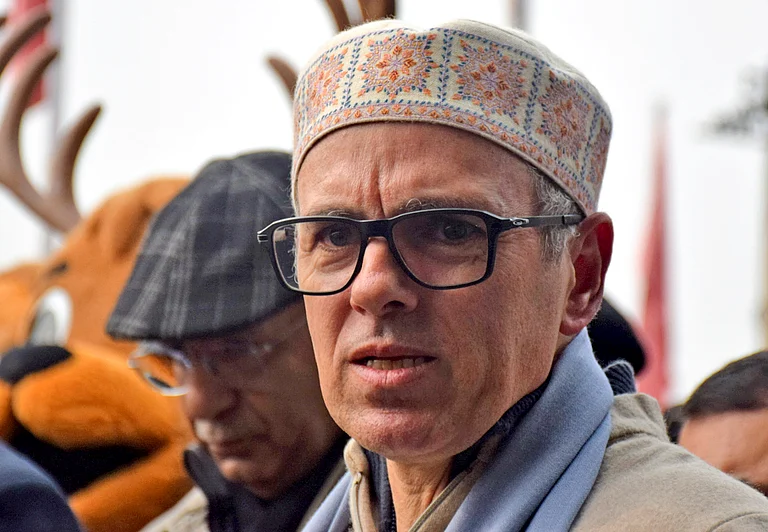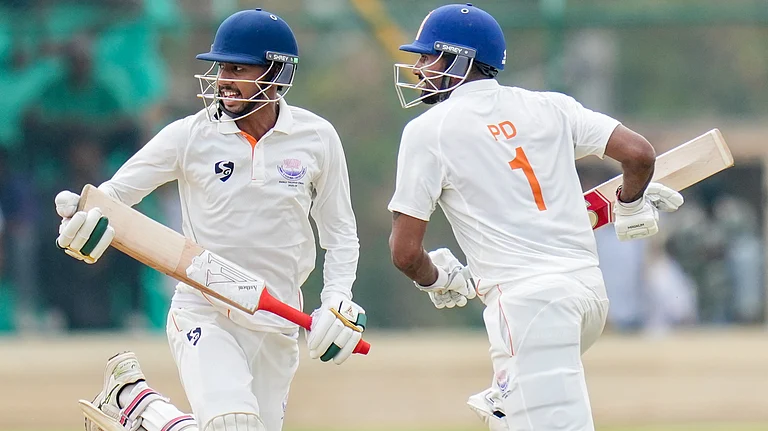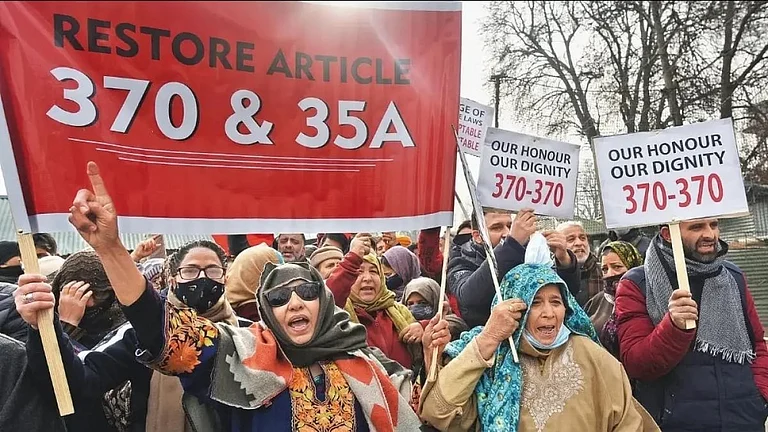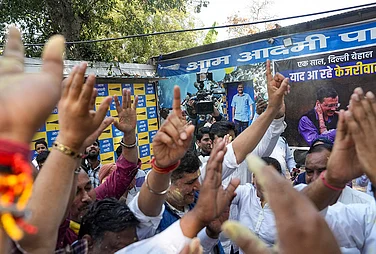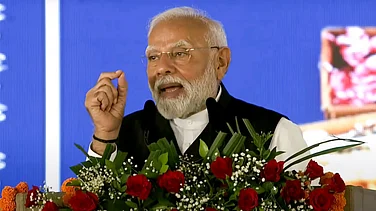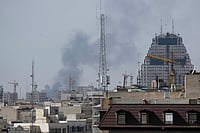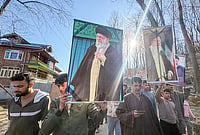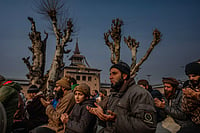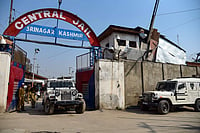
Aga Ruhullah has given the government till Dec 20 to address concerns over OM candidates getting only 40 per cent of jobs.
Political parties warn the government against reducing ST or RBA quotas
Inclusion of Paharis & other groups in the ST list has sharpened tensions with both OM and OBC demanding a relook at reservation shares.
Jammu & Kashmir Chief Minister Omar Abdullah appears to have few options to increase the job quota for the open merit category, even as party MP Aga Ruhullah has given the ruling National Conference (NC) an ultimatum till December 20 to resolve the matter.
Former Minister and senior Congress leader Taj Mohiuddin has opposed the reservation for a section of Paharis who belong to the upper caste category of Hindus. Though his party is part of the Jammu and Kashmir government, he believes that there was little that CM could do to alter the reservation percentage of the scheduled tribe (ST) category, which includes the Paharis in the Union Territory (UT).
Abdullah is under pressure from his own MP, Aga Ruhulla, as well as students from the general-category. Ruhullah has threatened that if the government fails to address the matter, he would join the protest with the students from the open merit (OM) category like last December when he was joined in the stir by the PDP leaders including Iltija Mufti and MLA Waheed Parra.
The students belonging to the OM category have argued that the reservation quota was excessively high in the UT and should be reduced.
However, Abdullah appears to have few viable options. Any decision to reduce the reservation of STs could mean a loss of vote base for the NC. Political parties have cautioned the government against doing away with the Resident of Backward Area (RBA) category reservation. A cabinet sub-committee earlier finalised a report on the matter, which has not been made public.
As of now, the candidates applying in the OM category get only 40 per cent jobs. In a recent advertisement issued by the recruitment agency J&K Services Selection Board (JKSSB) for the 600 posts of accounts assistants, 40 per cent (240) have been kept for the OM, 8 per cent (48) for the SC, 20 per cent (120) for the ST, 8 per cent (48) for the Other Backward Class (OBC), 4 per cent (24) for those living along the Actual Line of Control/International Border and 10 per cent each for the RBA and Economically Weaker Sections (EWS) category.
Taj Mohiuddin notes that as the previous BJP government even included the upper-caste categories in the ST list, there were few options left for the NC government. “The UT government can’t alter the percentage of reservation of the ST category, which is guaranteed under Article 342,” he says.
Articles 341 and 342 of the Constitution define who all could be in the SC and ST categories in the states or UTs, and these constitutional provisions empower the President to specify different “castes, races, tribes, tribal communities” as SCs or STs.
Last February, Parliament passed the Constitution (Jammu and Kashmir) Scheduled Tribes Order (Amendment) Bill, 2024, granting the ST status to Pahari ethnic group, Padari tribes, Koli and Gadda Brahmin. After the BJP government declared the Paharis as the scheduled tribe (ST) category before the 2024 assembly elections, several Muslim leaders joined the party, while it also bagged seats in the Muslim areas of Rajouri and Poonch in the Jammu region.
ST activist R K Kalsotra says that instead of giving the OBC category the 27 per cent reservation in line with the recommendations of the Mandal Commission in Jammu and Kashmir, their share in the jobs was only 8 per cent. “Both the Gadda Brahmin and the Padari tribes in Kishtwar district are upper caste category, and there is no point in giving them the reservation.
One understands if the reservation benefit goes to Gaddis and Sippis, who are backward tribes, but what is the point of giving it to the Gadda Brahmin? Even the affluent Muslims like the Syeds have got the benefit of the Pahari reservation,” he says.
However, the BJP has claimed the credit for increasing the OBC reservation in Jammu and Kashmir. “We have increased the OBC reservation from 4 to 8 per cent in Jammu and Kashmir,” says BJP Vice President, Priya Sethi. She adds, “NC is trying to deprive deserving people of the benefits of reservation. There are reports that the NC government will reduce the reservation quota of the STs and the RBA too, and these measures are aimed at depriving the people of their rights,” she says.
The NC government, besides facing a difficulty in reducing the quota of STs, has also met with opposition from other political groups over any plans to slash the job percentage for the RBA category. Gujjars and Paharis (both STs) comprise nearly one-third of the NC MLAs and form a sizeable vote share. As per the Jammu and Kashmir government data in 2011, the Pahari Pahari-speaking population stood at over 10 lakh and comprised 8.16 per cent of the population of the erstwhile state.
Mohi-ud-Din adds that the Pahari population was less than 8 per cent, while the Gujjars constituted 14 per cent. Senior leader of the Democratic Progressive Azad Party (DPAP), Salman Nizami, says that the move to reduce the (RBA) quota would be an “injustice to the people living in remote and backward areas of the Union Territory”.
“The Chenab Valley region, which includes the districts of Ramban, Doda and Kishtwar, will be the hardest hit. People in the rural pockets of these areas are backward, and lack facilities for proper education and reducing the RBA category will affect them the most,” he says.
“RBA quota was brought in to improve the condition of underprivileged and marginalised sections of society who inhabit far-flung areas and suffer due to a lack of public infrastructure and have little means of education. Slashing the RBA quota would be an attempt by the NC-led government to snatch the rights of poor and backward people. We will not remain silent on it and will fight it politically and legally,” he adds.
NC Karnah MLA Javed Mirchal says that NC will ensure that people get their due rights. He adds that he was hoping that the report of the cabinet sub-committee will be released by the government in the public domain before a decision is taken over the issue.
“NC, as a party, is committed to the upliftment of all sections of society,” he adds.







